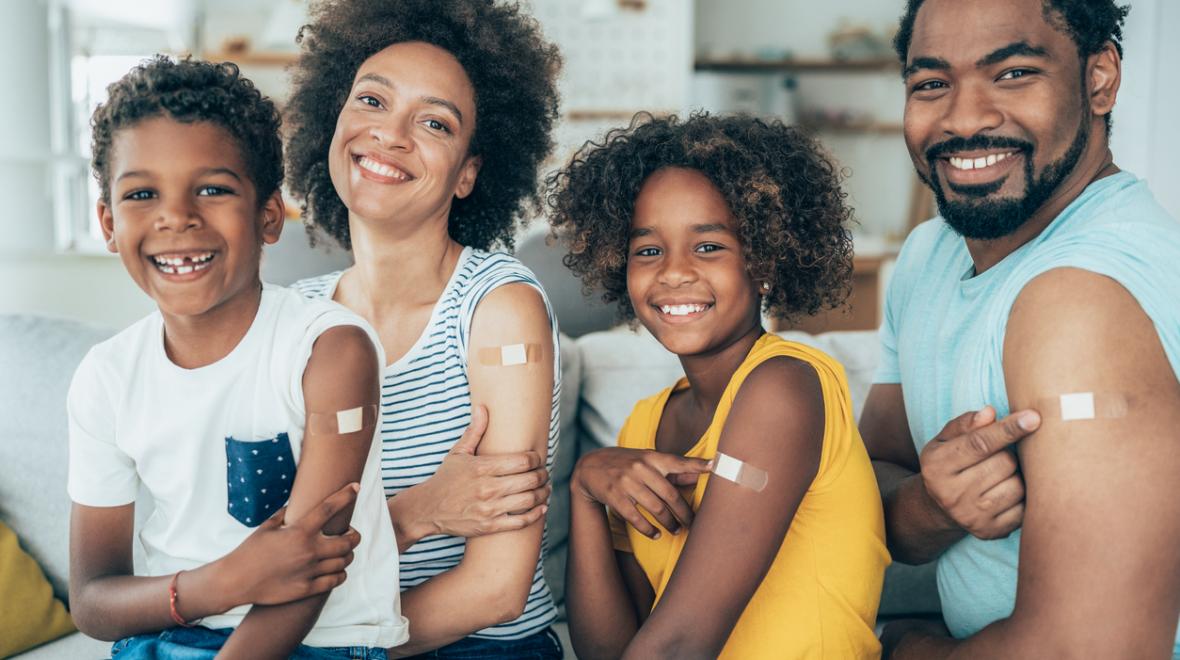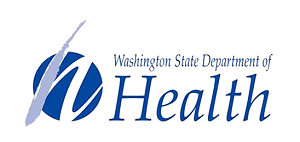
Editor's note: This article was sponsored by the Washington State Department of Health.
For Matthew Kronman, M.D., the availability of the COVID-19 vaccine for the 5–11 age group had an immediate and personal impact.
His 11-year-old daughter could finally join the rest of the family in being better protected against serious illness, even death. And she could go to the movies and restaurants again.
“She felt super eager to join the club,” says Kronman, a pediatric infectious disease specialist at Seattle Children’s Hospital. “This represents a hugely important step in our ability to contain this virus and ideally get back to whatever we think of as normal life.”
Physicians and public health experts are urging parents to get their children vaccinated, both to protect their children’s health and to help slow the spread of the disease in the broader community. As new variants of the coronavirus circulate, it’s more important than ever to use every tool possible to stem the spread.
“Getting vaccinated now is the best protection against new variants like omicron,” says Tao Kwan-Gett, M.D., MPH, Washington state’s chief science officer and a primary care pediatrician.
Off to a good start
Since the November rollout, more than 23 percent of Washington children ages 5–11 have received their first COVID-19 vaccination dose, according to the Washington State Department of Health. About half of older children have been fully vaccinated since the initial emergency use authorization of the Pfizer-BioNTech vaccine for kids ages 12–15 was issued in May 2021.
“We’ve gotten off to a good start, but we need to get more kids vaccinated as quickly as we can,” says Kwan-Gett.
Health experts recommend the vaccine for all children eligible to receive one, even if they’ve already had a COVID-19 infection. That’s because vaccination offers a stronger and more consistent antibody response than antibodies from an infection alone.
Experts also caution that it’s a misconception that COVID-19 always results in a mild illness in children. In Washington state, more than 900 children have been hospitalized due to COVID-19 infections and more than a dozen have died. Nationwide, cases of coronavirus disease in youths 18 and younger have resulted in the deaths of about 700 children, according to Centers for Disease Control and Prevention figures. While many of these children had preexisting health conditions, such as lung diseases, healthy children have also been impacted.
“The COVID-19 vaccine has killed exactly zero children,” says Kronman. “We know it’s safer and better to get the vaccine than it is to roll the dice on getting the infection itself.”
While the demand for the pediatric vaccine initially exceeded the available supply in Washington, the federal government has since increased allocations. Parents should be able to easily access the vaccine at no cost, using sites such as VaccinateWA.org to find appointments to receive the smaller pediatric doses.
The dosage for the 5–11 age group is 10 micrograms, which is one-third the dosage for adults receiving the Pfizer-BioNTech vaccine. Studies have concluded that this smaller dosage triggered a similar immune response in kids compared to older groups that received the higher adult dosage. This is because younger children have immune systems that respond well to a lower dosage. For those whose children may be nearing age 12, it does not make sense to wait for the higher dosage, experts say, encouraging protection from COVID-19 infection as soon as possible.
The vaccine is currently estimated to be about 91 percent effective in preventing COVID-19 disease in this age group. But to get those benefits, it’s important to complete the full vaccination series, which means receiving a second dose of the Pfizer-BioNTech vaccine three weeks after the first. Teens who are 16 years and older should then get a booster at least 6 months after their second dose to get better protection against new variants like omicron.
Addressing vaccine hesitancy
While many parents were thrilled with the emergency-basis authorization and rushed to sign up their children, others have lingering questions. At Seattle Children’s, Kronman tries to understand and address the root concern when a parent signals hesitation.
“I would point out that there really haven’t been any other vaccines in history that have been as closely scrutinized as these,” he notes. “This is a safe vaccine, and its benefits largely outweigh its risks.”
The vaccine might lead to short-term arm pain, fatigue and fever for a day or two, but those symptoms resolve quickly. There have been rare cases of temporary myocarditis, or inflammation of the heart muscle, an effect that resolves without any long-term health impact in the vast majority of patients. So far, most of those affected have been teenage boys; there have been no reported cases of myocarditis in the younger age group. Comparatively, COVID-19 infection is associated with a substantially increased risk of myocarditis (about four times more likely), according to a study published last August in The New England Journal of Medicine. The American Academy of Pediatrics recommends that children and adolescents who have had severe COVID-19 symptoms be cleared by a heart specialist before resuming athletic training or competition.
Kronman also emphasizes that it’s routine to receive childhood vaccinations for chickenpox and polio, which pose lower health risks to children than COVID-19. Along with protecting your child, the vaccine also shields others who might be even more vulnerable to infection.
“It saves lives — our children’s and everyone else they’re in contact with,” he says.
What’s next?
Whatever level of caution you practice at home, families must be sure to follow public health recommendations when in public spaces. The Washington State Department of Health’s COVID-19 website offers clear guidance on mitigation factors to ensure safer interactions, such as masking indoors and in crowded outdoor spaces. Vaccination adds a critical layer of protection.
“You can feel a lot more comfortable getting together if everyone is vaccinated,” Kwan-Gett says.
COVID-19 vaccination for children could have a big impact in the school setting, he adds. Fewer kids getting sick from the coronavirus means less isolation at home and fewer quarantines for close contacts.
“I see vaccination as a very important tool to helping kids stay in school,” says Kwan-Gett. “It’s so important for kids [to be in school] — physically, emotionally and socially.”
Use every tool possible
The emergence of the omicron variant has underscored why it’s so important to get vaccinated, health experts say. These new variants emerge when a virus mutates inside a human’s body.
“We humans are the petri dish driving the evolution of the virus,” says Kronman. “The more we pass it on to each other, the more changes continue to evolve, creating variants.”
With so much still unknown, it’s important to use every tool possible to protect yourself and your children. “It’s not a reason to panic, but a reason to get vaccinated,” says Kwan-Gett. “Now is the time.”
|
Sponsored by |
|
|












